#history music video
Photo
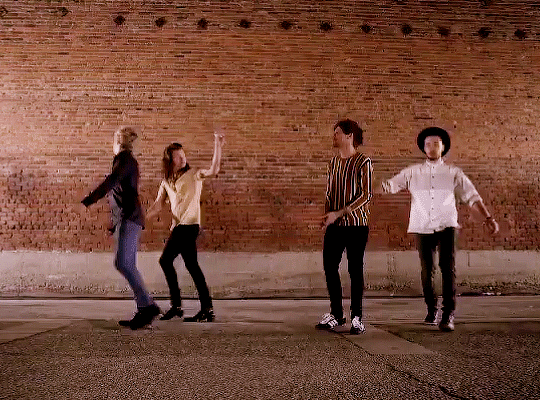

you and me, got a whole lot of history.
#one direction#1d#onedirectionedit#1dedit#history music video#1dsource#trackinghappily#trackinghome#1dgifs#one direction edit#one direction gifs#mine#mygifs
248 notes
·
View notes
Text
women are my favourite guy
7K notes
·
View notes
Text
Jack Black was my history teacher. He just showed the class random music videos that had nothing to do with what we were learning about.
2K notes
·
View notes
Text
"That's the Pizza Tower tutorial song." "No, it's a traditional Italian folk song." No, it's literally a 140-year-old meme – "Funiculì, Funiculà" was written in 1880, as a joke, to commemorate the opening of a tourist attraction at Mount Vesuvius. (The tourist attraction was later destroyed by a volcanic eruption.) Go ahead and rewrite the lyrics to be about sticking your dick in a pizza – there is nothing you can do with this song that's more ridiculous than its original context.
#gaming#video games#pizza tower#media#music#history#memes#funiculi funicula#luigi denza#guiseppe 'peppino' turco#penis mention#food mention
5K notes
·
View notes
Text
Linda Martell - "Color Him Father" (1970)
**Beyoncé's latest album 'Cowboy Carter' spotlights Linda Martell, a pioneer and trailblazer who paved the way for Black country music artists, as she was the first commercially successful Black female artist in the genre.
#linda martell#color him father#1970#color me country#the linda martell show#beyoncé#beyonce#cowboy carter#renaissance act ii#music#country music#black music#black artists#black history#black women#african american#paying homage#icon#video#sbrown82
833 notes
·
View notes
Note
can you draw klavier gavin ?!
yeah sure :-)
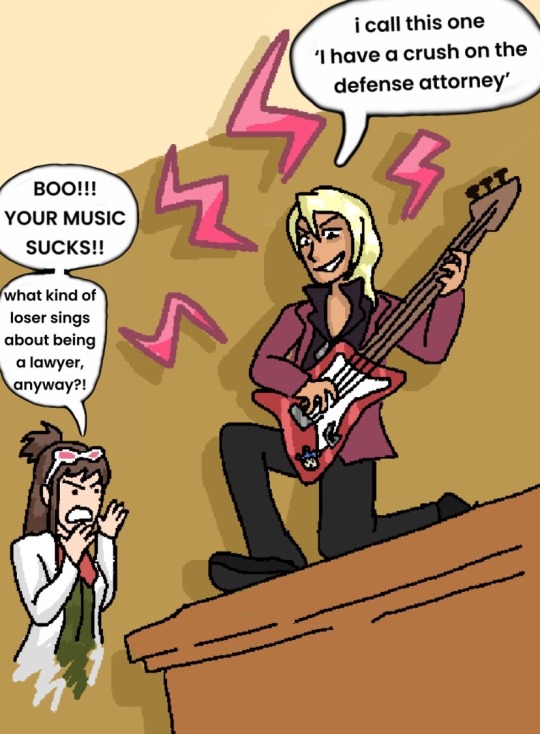
Also, as a side note: if any of you ace attorney fans out there want to listen to a courtroom/law themed love song, theres one from the 1920’s called ‘my fate is in your hands’ !!! (link)
(the best cover imo is by josephine baker. Also if any of you don’t know who that is, you should read the wikipedia page for josephine baker because she was like the coolest woman of all time)
With lyrics like ‘wanting you is my offense, you have all the evidence, now i wait for you to sentence me.’ And ‘there’s no use pretending, love needs no defending, what is the verdict? My fate is in your hands.’ i feel like this is a song every ace attorney fan should listen to.
(Also my real motive here is that i just want everyone to listen to more 20s music. i love 20s music)
#ace attorney#ace attorney fanart#ace attorney comic#apollo justice#aa4#aa4 fanart#klavier gavin#ace attorney klavier#aa klavier#ema skye#klapollo#music history#1920s#1920s music#comic#comics#webcomic#fanart#video games#visual novel
290 notes
·
View notes
Text
The Beatles during their first visit to the United States, 1964.

youtube
#1964.#the beatles#history photos#history music#music#music story#my music#music love#musica#rock music#rock photography#Youtube#youtube music#youtube video#youtube#john lennon#paul mccartney#george harrison#ringo starr#psychedelia#rock#pop rock#rare photos
151 notes
·
View notes
Text
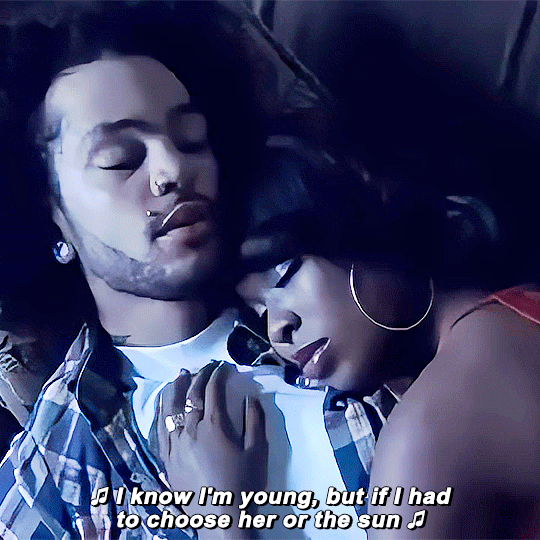

GYM CLASS HEROES | Cupid's Chokehold
#gym class heroes#travie mccoy#porscha coleman#cupids chokehold#dailymusicians#usermusicdaily#musicsourcedaily#pocedit#pocpopculture#mediagifs#useroptional#chewieblog#userbbelcher#throwbackblr#dailymenedit#i dont care that the video is low quality#this is one of the most romantic lines in music history#mygifs
456 notes
·
View notes
Text
youtube
How Tamahagane (Japanese steel) was made, video by Life were I'm from.
As Japan did not have many iron ore deposits, it had for a long time to rely on more available satetsu 砂鉄 (ironsand, carried for ex. by rivers). Ironsand was then processed in special furnaces called tatara to make prized tamahagane 玉鋼 (traditional Japanese steel, used among other things to forge swords).
If you've seen Princess Mononoke, you know exactly how tatara forge could look like thank to Lady Eboshi's Iron Town:
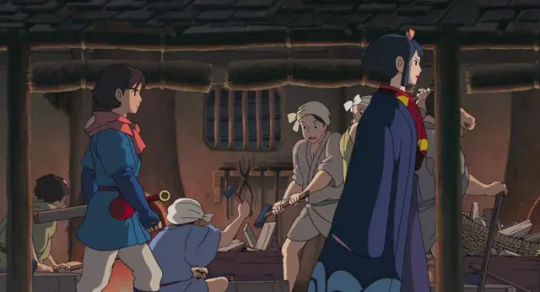
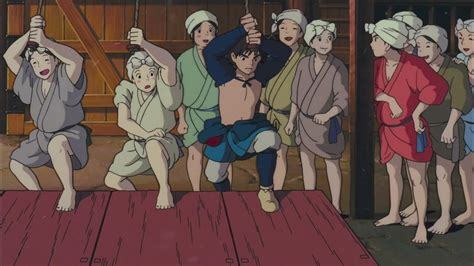
... and now I have the Tatara women work song stuck into my head <3
youtube
#japan#video#Life were I'm from#arts and crafts#japanese history#tamahagane#steel#satetsu#iron#ironsand#forge#tatara#furnace#industry#princess mononoke#mononoke hime#Tatara women's work song#music#Youtube
288 notes
·
View notes
Text
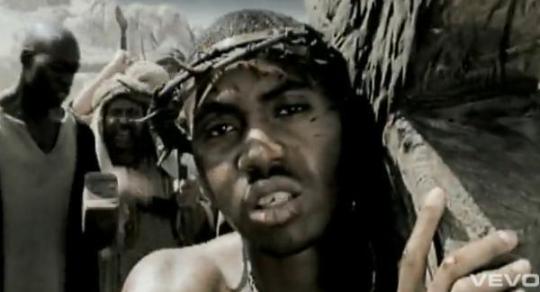
Today in Hip Hop History:
Nas released the video for the song Hate Me Now April 6, 1999
#today in hip hop history#todayinhiphophistory#hiphop#hip-hop#hip hop#music#hip hop music#hip hop history#history#hip hop culture#nas#hate me now#music video#video#emcee#mc#rap#rapper#1999#99
73 notes
·
View notes
Text
Mister Rogers aging from 1967-2000
75 notes
·
View notes
Text
Coffee With A Codex is an informal lunch or coffee time to meet virtually with Kislak curators and talk about one of the manuscripts from Penn’s collections. Each week we’ll feature a different manuscript and the expertise of one of our curators. Everyone is welcome to attend. Events are on Thursdays at 12pm Noon EST / 5pm GMT.
On January 18, Curator Dot Porter will bring out Ms. Codex 1233, a breviary for use in the diocese of Cologne, probably in the Kölner Dom (cathedral). Made in the 15th century, it was used, annotated, and repaired through to the end of the 18th century.
Register to attend.
Note that the Zoom links for Coffee With a Codex are reusable - register once and attend every Thursday at 12pm EST / 5pm GMT.
See the full schedule for Coffee with a Codex.
Join our mailing list for weekly updates.
Past CWAC events are available on YouTube.
Hope to see you there!!
#medieval#manuscript#video#event#virtual#medieval manuscript#liturgical manuscript#15th century#16th century#17th century#18th century#music#liturgical music#book history#rare books
66 notes
·
View notes
Text
#uploads#videos#little Richard#bo diddley#chuck berry#melanin#black history#black hollywood#black icons#music legends#music legacy#jazz#rock
175 notes
·
View notes
Text
if you dont like mulatós FUCK you i hate you it's literally called mulatós you hate fun??? you hate mulatság???? huh???????? te gyász
#got a video abt mulatós in my recommended and half the comments are cool history but i hate the music#LIKE OMGGGGGG WYMMMMMMMM WYM WYM#minden ilyen viccből híres mulatós ami anno meme volt kurvanagy banger. ez a mai hot take-em#barking#hungarian
97 notes
·
View notes
Text
youtube
When I was a child in the '80s, I absorbed some kind of cultural truism that disco was ridiculous, embarrassing, cheesy, a cultural relic to be mocked at every turn. Remember, I'm under ten years old at this time, and I still manage to get this impression. There was another, milder sea change when grunge overtook the hair metal of the late '80s, so I never questioned the idea that disco should be dead and buried. We like silly things, I thought in my 13-year-old wisdom, and then we get over it.
Then I saw The Last Days of Disco (1998) while I was in college, and suddenly I realized that disco was fun, and it was like—it was in the roots of—music I already loved. And the end of that movie also—hints? tells you? I can't remember how explicitly—that disco didn't just fade like most trends; it was killed off.
I watched a lot of VH1 in those days, the late '90s, with a little TV sitting on my tall university-issue dresser, its corner overlooking my computer desk while I struggled with piles of assignments. This was the heyday of Behind the Music, so it was great background TV. And then one day (1999) they ran a Donna Summer—the "Queen of Disco"—concert special. The video up there is the song that immediately became my favorite of hers. It’s just instant serotonin to me, any version of it. I bought the whole VH1 album on CD, and "This Time I Know It's For Real" may genuinely be one of my all-time favorite songs, now, still, more than 20 years later. You can hear the original version (1989) here (the backing instrumental that I just found today is lovely), but the live version ten years later, the video up there, has a really special comeback—joyous, gracious survival—energy to it.
Watching the whole concert, I got it. Why the fuck did I ever think disco wasn't amazing? It was always the kind of thing I loved; we had all just been pretending that it was embarrassing glitter trash.
And then I found out why we were pretending. From densely-footnoted Wikipedia:
Disco Demolition Night was a Major League Baseball (MLB) promotion on Thursday, July 12, 1979, at Comiskey Park in Chicago, Illinois, that ended in a riot. At the climax of the event, a crate filled with disco records was blown up on the field between games of the twi-night doubleheader between the Chicago White Sox and the Detroit Tigers. Many had come to see the explosion rather than the games and rushed onto the field after the detonation. The playing field was so damaged by the explosion and by the rioters that the White Sox were required to forfeit the second game to the Tigers.
[...]
The popularity of disco declined significantly in late 1979 and 1980. Many disco artists carried on, but record companies began labeling their recordings as dance music. [...] Rolling Stone critic Dave Marsh described Disco Demolition Night as "your most paranoid fantasy about where the ethnic cleansing of the rock radio could ultimately lead". Marsh was one who, at the time, deemed the event an expression of bigotry, writing in a year-end 1979 feature that "white males, eighteen to thirty-four are the most likely to see disco as the product of homosexuals, blacks, and Latins, and therefore they're the most likely to respond to appeals to wipe out such threats to their security. It goes almost without saying that such appeals are racist and sexist, but broadcasting has never been an especially civil-libertarian medium."
Nile Rodgers, producer and guitarist for the disco-era band Chic,
(who survived the disco era to make half the music I loved in the '80s)
likened the event to Nazi book burning. Gloria Gaynor, who had a huge disco hit with "I Will Survive," stated, "I've always believed it was an economic decision—an idea created by someone whose economic bottom line was being adversely affected by the popularity of disco music. So they got a mob mentality going."
The DJ who ran the whole thing, Steve Dahl, complains that it was VH1 itself—you know, those Behind the Music specials I was watching—circa 1996 that labeled the whole debacle as bigotry when it so totally was not, you guys, and he is so tired of defending himself. But I'm gonna tell you, Steve, I don't really care. Maybe Disco Demolition Night was your fault; maybe you were just a part of something so much bigger and uglier that you couldn't see the whole size of it. Can you draw a direct line from the weird bigoted vitriol directed at those dance records to Ronald Reagan, elected the very next year, not giving a single fuck about the AIDS crisis? You probably don't want to, but I will.
And I don't care because I can look around the U.S. right now and tell you, nearly 45 years later, people are trying to demolish a lot more than disco. The Club Q shooter was sentenced to life in prison just a few hours ago. It's Pride Month, and we're all sitting here holding our breaths. That's a terrible way to end a post about a beautiful happy song I love, I guess, unless you turn it around and say, that should have been the whole point of this post in the first place. Listen to this song and think, people wanted to destroy this music, this sound, this joy for some reason. They want to stop people from just living their lives, from dancing. And yet, disco is still here. It was there in 1979, and it was there when Donna Summer released this song in 1989, and it was there when she returned in 1999. The Queen of Disco passed away in 2012, and it's still here. I feel a lot of joy when I listen to this song, but I don't think I'd ever thought about it being the joy of grooving with something just because it’s beautiful, the joy of just being here, still.
#donna summer#music#video#disco demolition night#queer history#lgbtqia+#club q shooting#aids crisis#pride#pride for one thousand years#I feel really hesitant about the turn this post took but#if the dots are there you gotta connect them#long post#music discussion
208 notes
·
View notes